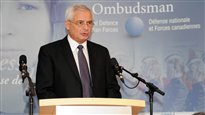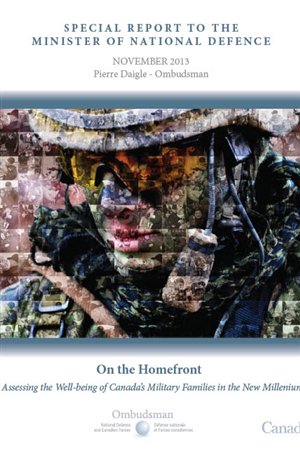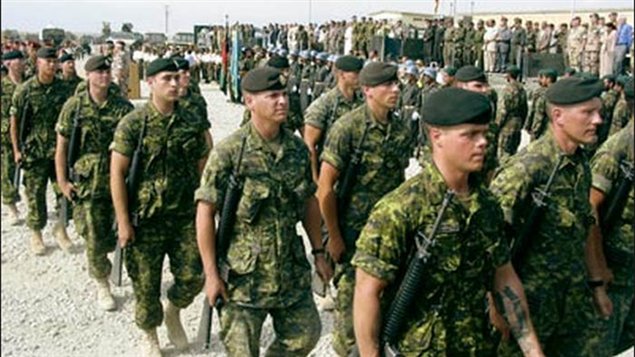Canada’s Armed Forces have always been highly respected on the international scene for capabilities and performance above and beyond their theoretical ability “on paper”. A new study however shows, that that excellent performance comes at an increasingly burdensome cost to military families.
Pierre Daigle, is the Department of National Defence and Canadian Forces Ombudsman. He prepared the report called “On the Homefront: Assessing the Well-being of Canada’s Military Families in the New Millennium.”
Listen
Pierre Daigle notes that this is the first report of its kind in the Forces which focusses on military families.
He says the well-being of the family is important to the well-being of the military personnel individually, and by extension, the military as a whole.
He points out that while military personnel remain highly dedicated to their tasks and service, and that military families realize there will be sacrifices, those sacrifices must not be excessive, and now need to be mitigated through policy changes.
The report notes that the constant moving of service members back and forth across the country is very disruptive to military families on many levels.

Aside from the disruption of packing and moving itself, there are financial burdens if members have to sell houses quickly at below market value.
If living in base housing, there are questions of the housing itself being unattractive as an option being outdated and often in need of repair.
Also, spouses have difficulty establishing a career and often have to take jobs below qualification, while children have difficulty forming friendships as they move around every few years.
The additional long absences of the military member due to operational deployments such as the Afghanistan war, or the many peacekeeping missions create trouble in family relationships and especially with and for the children.
As the size of the Canadian Forces is small, certain elements such as the even smaller elements of infantry, armour, and logistics are often redeployed after relatively short periods back in Canada.
The report also notes that the constitution of a “family” has changed over the decades and that the variety of compositions of a “home” situation today has to be understood and their varying needs understood with policies suited to the changed definitions of what constitutes a “family” situation.
In all, the report makes six key findings to improve conditions for military families and the serving member and makes 18 recommendations on how the Department of Defence and Canadian Forces can address these concerns.







For reasons beyond our control, and for an undetermined period of time, our comment section is now closed. However, our social networks remain open to your contributions.